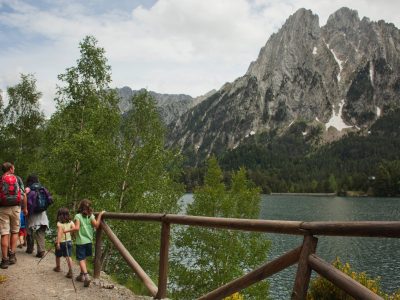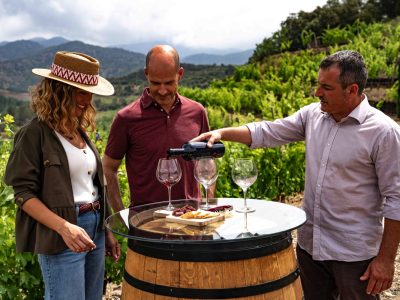
Catalonia is appetising
Savoring Catalan gastronomy is a journey through the landscapes, traditions, and knowledge of an entire people. Rice, roasts, cold meats, pastries and more: All these dishes speak to the history of the country, the customs of its people and life today and in the future. Try them!
Catalonia is a country made of recipes. Traveling around its geography also means sampling the tastes it offers which help you to understand the true essence of the land you are walking. Fish suquets and platters are a stroll along its beaches and rocky coastline; casseroles and rice dishes take you to orchards and market gardens; stews and roasts have a mountain touch and mushrooms and truffles feature woodland aromas.
The variety of ingredients and raw materials of the land is the basis of a unique cuisine. From local cereals, farmhouse breads, rice dishes from Pals and the Delta and shepherd’s cheeses to the infinite varieties of beans and chickpeas, vegetables, mushrooms, game meats, seafood, and olive oils. Each of these exceptional products is part of an unrivaled agri-food heritage and tucking into them will introduce you to the work of everyone who shares this passion: Eager farmers, intrepid artisans, dedicated fishermen, committed winegrowers, and even internationally renowned chefs.
The tastes of Catalonia are the heritage of domestic cuisine from all over the country, yet they have also been forged in haute cuisine restaurants which seek to share them with the world. They come from the wineries, farms and pens, oil presses and mills, small bakeries and fairs and markets, too. So in short, sampling our cuisine means walking and getting to know the remotest nooks and crannies around the country.
Winemaking tradition in the blood
If there’s one thing that runs through Catalonia’s DNA, it’s wine. There’s no doubt that we are a country of vineyards and winemaking tradition. Large and small producers open the doors of their wineries to give you a closer look at what they do. In recent years, this has especially involved recovering and championing native varieties and respecting the landscape and the environment as much as possible.
Wine tourism is one of Catalonia’s greatest attractions. It allows you to explore historic wineries and Catalan Art Nouveau wine cathedrals while savoring their varieties and learning from their owners and winemakers. The wineries host a wide range of activities to discover their wines while you learn all about the local area: You can sip a drink in the midst of wild vineyards, sample the traditional cuisine of a centuries-old farmhouse, pop into Civil War air raid shelters that are now cellars, share a harvest meal in a dry stone hut dating back over 100 years, and more.
And that’s not all. There are numerous wine-related traditions and events all around the country. You can pick grapes for a few days and take part in this ancient tradition, dance at music festivals held in wineries, enjoy poetry recitals against the backdrop of 16th century presses or have fun with the family touring the vineyard in a kids’ scavenger hunt. There are options for literally all tastes.
The Mediterranean essence
The olive oil community has embarked on a similar journey. Their efforts and commitment to recovering premium quality local varieties have brought the olive oil industry to a new peak. Argudell, vera, palomar, corbella and farga are just some of the varieties that have broadened the palette of tastes beyond arbequina olives and further enhanced the sector. You can learn more about all this in olive oil tourism which will show you rural landscapes and the most ancient traditions.
In short, you don’t need a map or a guide to explore Catalonia. You have enough with a cookbook. It will take you wherever you want to go, whether you’re looking for peace and quiet and seclusion in nature or are more into contemporary architecture, popular flavors or avant-garde creations. Wherever you go, Catalonia always provides memorable moments around the table for everyone.










